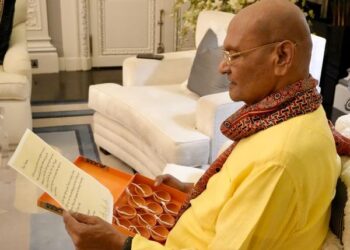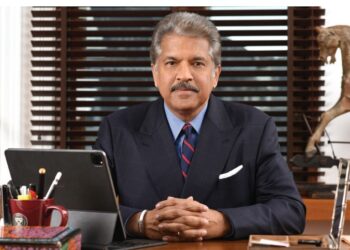By Rusen Kumar
Synopsis of the Story
Gautam Adani, a well-known and successful businessman in India, recently addressed allegations that his progress is due to the influence of Prime Minister Narendra Modi. In a statement, Adani explained that his journey as an entrepreneur can be divided into four phases, each marked by significant policy changes and reforms that have played a role in his success.
In an interview with India Today, Gautam Adani, the Chairman of the Adani Group, addressed criticism that his rapid rise as a businessman is due to the influence of Prime Minister Narendra Modi. Adani praised Modi’s leadership, stating that he has brought about significant policy changes and has directly impacted the lives of every Indian through various programs and schemes.
Adani also highlighted Modi’s focus on the social sector, agriculture, underdeveloped areas of the country, and providing a safety net for the poor, which has contributed to inclusive and sustainable growth in India.
Adani pointed to transformative initiatives such as Swachh Bharat, Jan Dhan Yojana, Direct Benefit Transfer, and Ayushman Bharat as examples of Modi’s efforts to bring about positive change in the country.
Gautam Adani, the chairman of Adani Group, has recently faced allegations that Prime Minister Narendra Modi has played a role in his progress. In a recent interview with the media, Adani strongly denied these allegations, stating that they are completely false.
Adani Group with interests in ports, airports, power generation and transmission, green energy, edible oils, cement and real estate, among others. Adani controls Mundra Port, India’s largest, in his home state of Gujarat.
2022, Adani has had an impressive year, becoming Asia’s wealthiest person and the third wealthiest globally according to Bloomberg’s ranking. Despite economic challenges, Adani’s net worth has increased by $40 billion in 2022.
In 2022, Adani’s fortune doubled to $150 billion, making him the wealthiest person in India and, for a short time, the second wealthiest individual in the world.
In a face-to-face interview, Adani explained that his journey as an entrepreneur can be divided into four phases, each marked by significant policy changes and reforms that have played a role in his success.
The first phase began in the 1980s when Prime Minister Rajiv Gandhi liberalized India’s exit policy and allowed certain items to be included on the open general license list. This provided Adani with the opportunity to start his export house.
The second phase began in 1991 when Prime Minister P. V. Narasimha Rao and Finance Minister Dr. Manmohan Singh implemented sweeping economic reforms that benefited Adani and other entrepreneurs.
The third phase occurred in 1995 when Chief Minister Keshubhai Patel focused on coastal development and allowed Adani to build his first port in Mundra.
The fourth phase began in 2001, when Chief Minister Narendra Modi’s policies and implementation of development programs brought about economic and social transformations in Gujarat, including the growth of industries and employment opportunities.
Adani emphasized that his success is not solely due to any individual leader, but rather the result of policy and institutional reforms initiated by various leaders and governments over the past three decades. He also praised Prime Minister Modi’s leadership and the positive impact of his policies on the lives of Indians.
(India CSR)























